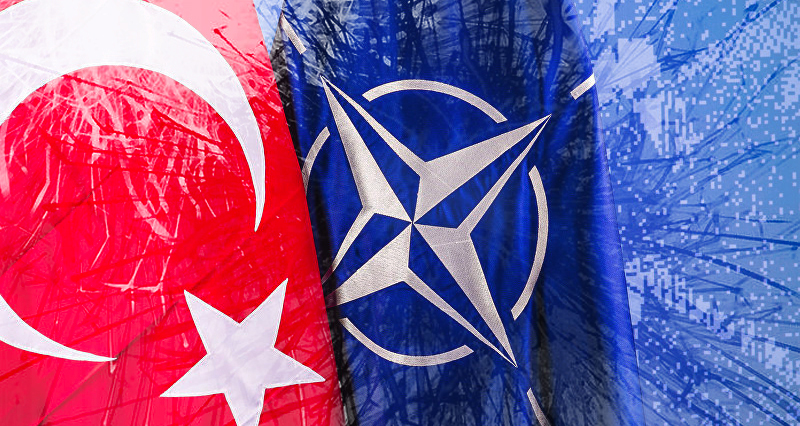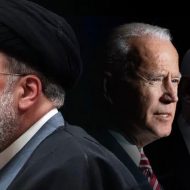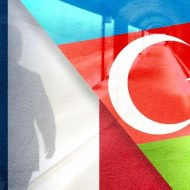United World International expert Onur Sinan Güzaltan evaluated the Türkiye-NATO agreement to Iranian media.
Türkiye agreed to lift opposition to Sweden and Finland joining NATO. How do you see such a move?
While evaluating this decision from the Turkish government, we should take into account the fact that presidential elections will be held in Türkiye next year, and the current economic situation is critical.
Throughout this process, the Turkish government has turned towards a policy that maintains the balance between the West and the East, and that prevents direct confrontation with the United States.
The government is currently trying to buy more time and strengthen its hand in negotiations. The decision in question is a mere byproduct of such policies.
Although it was said that the veto against Sweden and Finland has been lifted, for it to become official, the Grand National Assembly of Türkiye must vote upon this decision.
The example of 2003, when government approved the entrance of American troops against Iraq, but the parliament rejected it
For example back in 2003, a proposal allowing American troops to pass through Turkish territories to intervene in Iraq, was approved by the government, but was voted against in the parliament.
There is a possibility that a similar situation could occur depending on how things will proceed.
Personally, I believe that the expansion of NATO, an organisation that considers Türkiye’s allies, such as Russia and Iran, as its adversaries, and supports terrorist organisations against the Turkish Republic, is clearly contrary to Türkiye’s national interests.
What are the implications of Ankara’s decision to accept Sweden and Finland as new members of NATO?
This decision will only become official after an approval from the Turkish parliament. The decision is still yet to be officialized.
“Policy of balance” does not yield positive results
How do you see Türkiye-Europe ties? Is Ankara still trying to become a EU member?
The Turkish government has been pursuing a “policy of balance” for many years. The most fundamental features of this strategy are to establish co-equal relations with both the West and the East, and to take part in as many institutions and organisations as possible.
The government’s ongoing insistence on EU membership, is a part of this policy.
But I do not think it is possible for this policy to yield any positive results.
Of course, Türkiye should still protect and develop its relations with the Western countries on co-equal grounds.
But Türkiye’s geopolitical and economic interests do not require an EU membership.
While having a prominent status in Eurasia, Türkiye is not only a part of Europe, but also of Asia.
It is not possible for EU member Türkiye to follow a geopolitical agenda that is prerequisite for its own national interests.
Therefore, I do not see Türkiye’s accession to the EU as realistic.
What is the position of Türkiye in the Ukraine war? Apparently, Ukraine’s forces use Türkiye’s drones.
Türkiye has pursued a policy of neutrality from the beginning of the Russo-Ukrainian war.
The most significant indicator of this situation is Ankara’s refusal to impose anti-Russian sanctions despite all the pressure from the West.
The acceptance of Türkiye’s mediation by both Moscow and Kiev is an indication that Türkiye’s neutrality policy is well understood by these two countries.
On the other hand, the relations between Türkiye and Russia are improving day by day and cover many different areas.
Both countries are well aware of each other’s importance.
Idea of distancing from NATO or even leaving the organization has gained strength within the Turkish state since the 1990s
Isn’t that a contradiction that an Islamic country like Türkiye serves a Western alliance like NATO that can harm Islamic nations?
After the death of Mustafa Kemal Ataturk, Türkiye has abandoned its policy of friendship with the Soviet Union and other neighbours and has turned to the West instead. Türkiye’s NATO membership is a consequence of these developments.
However, the idea of distancing from NATO or even to leave it has begun to strengthen within the Turkish state since the 1990s.
Türkiye’s breakaway from NATO will accelerate, as it improves its relations with its own neighbours.
This is a 70-year long relationship. And NATO has an influence in Türkiye not only militarily, but also in politics, economy, in media and culture.
Of course, the breakaway will be painful, but today Türkiye is currently on its path of moving away from NATO.
We will be witnessing this even more clearly in the coming time periods.









Leave a Reply